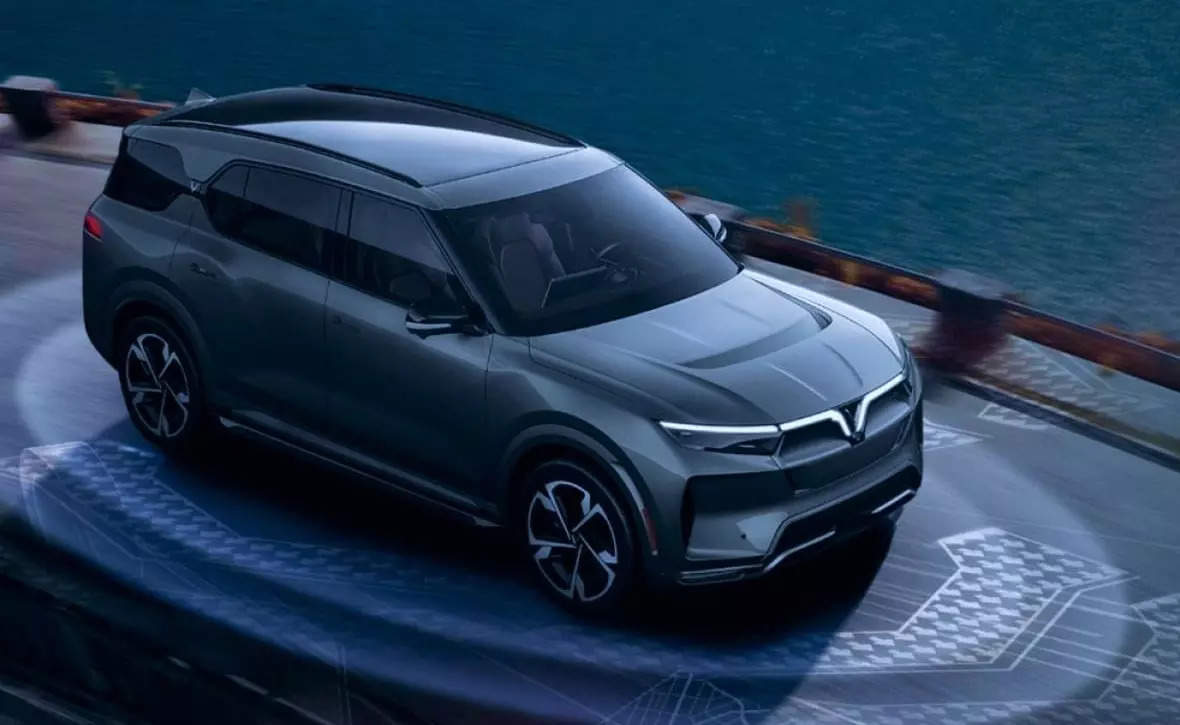
New Delhi: Vietnamese electric vehicle (EV) maker VinFast which is expected to make a foray into the Indian market by next year, is also looking to mark its presence in the bus and scooter segments, along with SUVs, to cater to a broader customer base.
“We are in serious discussions, and plan to enter the Indian market shortly. In India, SUV is the only segment that is growing, and also where we will be present,” Ashwin Patil, Vice President & Director of Sales for VinFast in India, told ETAuto.
While the share of hatchback and sedans has significantly dropped over the last few years, sports utility vehicles (SUVs) have doubled their market share in five years and now make up almost half of all passenger vehicle sales in India.
“Apart from SUVs, electric scooters and electric buses will be a part of India’s product portfolio. We have the capability and technology to produce them, but when they will be introduced is still under planning,” Patil added.
Beginning operations in 2017 in Vietnam, the company introduced 3 ICE models (VinFast Lux SA2.0, VinFast Lux A2.0 and VinFast Fadil) by 2019. The carmaker partnered with German automaker BMW, Italian design house Pininfarina, and suppliers Bosch and Siemens, to produce its two planned car models. This helped the company to stand its business in the domestic market.
By 2021, VinFast moved completely to EVs by launching VF e34, VF 8, VF 9, and delivering the first batch of vehicles to customers in Vietnam. In the same year, VinFast also launched two e-scooters (Theon & Feliz) and an e-bus.
“Now it manufactures 7 electric SUVs catering to different segments along with electric scooter models and an e-bus,” Patil stated.
In March this year, the Vietnam-based automaker delivered its first set of EVs in the US. In August, VinFast debuted on Nasdaq.
In the third quarter ended September 2023, the company reported a wider loss. Revenue increased to USD 342.7 million during the period, while net loss widened to USD 622.9 million, the automaker said in an exchange filing. This compares with sales of about USD 334.1 million and a loss of USD 526.7 million it reported in the second quarter.
As per the filing, it also announced plans to set up a facility in India with an investment of USD 150 million to USD 200 million in the first phase.
In India, VinFast is currently in the process of vehicle testing and establishing its plant location. “We are in the advanced stage of finalising a location for the plant,” Patil said.
The company has set up its corporate office in Gurugram and is now hiring for various roles including sales, aftersales, network development etc.
Initially, the models are expected to be imported, followed by local manufacturing to obtain government incentives and offer competitive prices in the market. Patil said the EV maker is “looking for support from the government for the reduction of import duty to develop domestic technical capability.”
VinFast is moving ahead with its India plans at a point when EV maker Tesla, whose tryst with India has been on and off for over two years, is also close to making its foray into the country.
Amid a push from the American EV maker for special sops to set up its factory in the country, there were reports about customs duty concession for the global automakers in India. However, as per a recent PTI report, a top government official has said that India will never provide company or enterprise-specific incentives in the EV sector.
At present, cars imported as completely built units (CBUs) attract customs duty ranging from 60% to 100%, depending on engine size and cost, insurance and freight (CIF) value less or above USD 40,000.
Interestingly, several domestic vehicle manufacturers have lined up significant investments to develop the local supply chains.
For the period of January to November 2023, India’s total EV industry sales across the segments (two wheelers, three wheelers, passenger vehicles, light commercial vehicle and buses) reported about 50% year-on-year growth at 13.87 lakh units, when compared with 9.24 lakh units of last year, according to the retail data sourced from VAHAN.
However, the EV megatrend in India is being led by the two and three-wheeler segments.

















